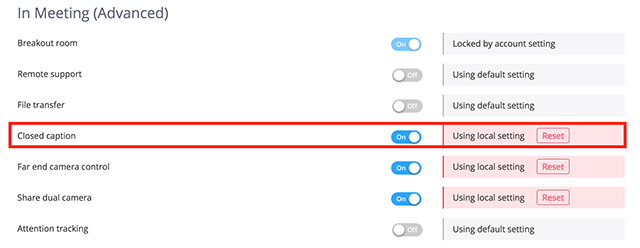August 19, 2020
By e Jewish Philanthropy
By Rabbi Yonah Berman
I recently spearheaded an online adult education program called Changemakers. This program brought together 30 Orthodox synagogues across North America to share in a four-part Zoom lecture series under the auspices of Yeshivat Chovevei Torah Rabbinical School, where I am the Director of Alumni Engagement and Chair of Professional Rabbinics. Each lecture in the Changemakers program focused on Jewish figures who have made a difference in the world, including Rabbi Abraham Joshua Heschel, Sarah Schenirer and Rabbi Avi Weiss. One particular session, led by YCT’s President and Rosh HaYeshiva, Rabbi Dov Linzer, focused on how the traditional Jewish understanding of deafness and deaf people has evolved over the last century due to the revolution in accessibility and availability of educational resources to those who cannot hear.
We were receiving hundreds of registrations from around the US, Canada and beyond. I was very excited to get the program running without a hitch, when I received the following email:
Hi,
Can you please tell me if your upcoming Zoom session on the status of deaf people in halakha will be accessible to deaf and hard of hearing participants? If it is, I would like to register.
Name withheld for privacy
DEAF
And it hit us like a ton of bricks: How could it be that we were running a program speaking about a sensitive topic that relates to the inclusion of a group of people, without providing the basic mechanisms to include those very people? With the encouragement of Rabbi Linzer, whose lecture motivated the letter-writer to reach out to us, I spent the next week hustling to find a solution.
I reached out to various Jewish organizations which assist those who are deaf or hard of hearing and pondered how to solve this problem of accessibility. Was hiring an American Sign Language interpreter the way to go, or should we explore hiring a closed-captionist? An ASL interpreter would have greatly benefited certain members of the deaf community, but he or she would have had limited utility for those who cannot understand ASL. A quick query on Facebook led three people to recommend a local woman who professionally transcribes Torah content in real-time.
With the interpreter in place, we began to ask our registrants if they would benefit from closed-captioning. To our surprise, around 20-25% began requesting it, including not only members of the deaf community, but also many members of the hearing community who normally follow lectures on Zoom with difficulty. The night of Rabbi Linzer’s lecture, I watched with amazement as our transcriber deftly kept up with Rabbi’s Linzer’s words and moved back and forth in her live closed-captioning between Hebrew textual references and his English-language commentary.
As a yeshiva whose values rest on the understanding that Torah is meant to be shared by all Jews, we learned a humbling lesson through this experience about our own blind spots, and I believe, ultimately lived up to our intentions to live our values. We were reminded of the importance of removing barriers to learning from those who can be left behind as we enter the brave new world of Zoom learning during the current pandemic and beyond. We have committed to creating an accessible environment to those who are deaf and hard of hearing in our future public programs, and have already done so for our recent Climate Conference and upcoming Yemei Iyun in Bible and Jewish Thought.
It behooves all Jewish institutions to consider their own steps toward inclusion, and invest in the resources to make their Torah as accessible to as many people as possible. The return on investment is high, and the knowledge that we are living up to our values is priceless.
Rabbi Yonah Berman is the Chair of Professional Rabbinics and Director of Alumni Engagement at Yeshivat Chovevei Torah Rabbinical School in New York.





